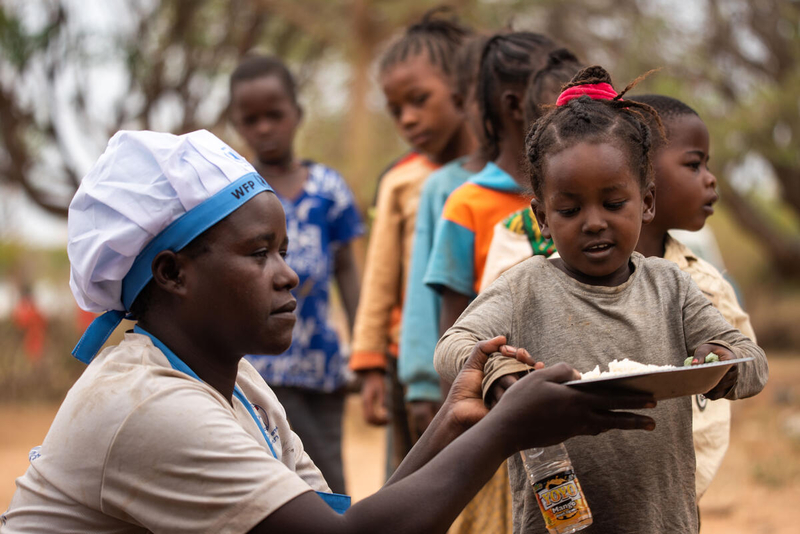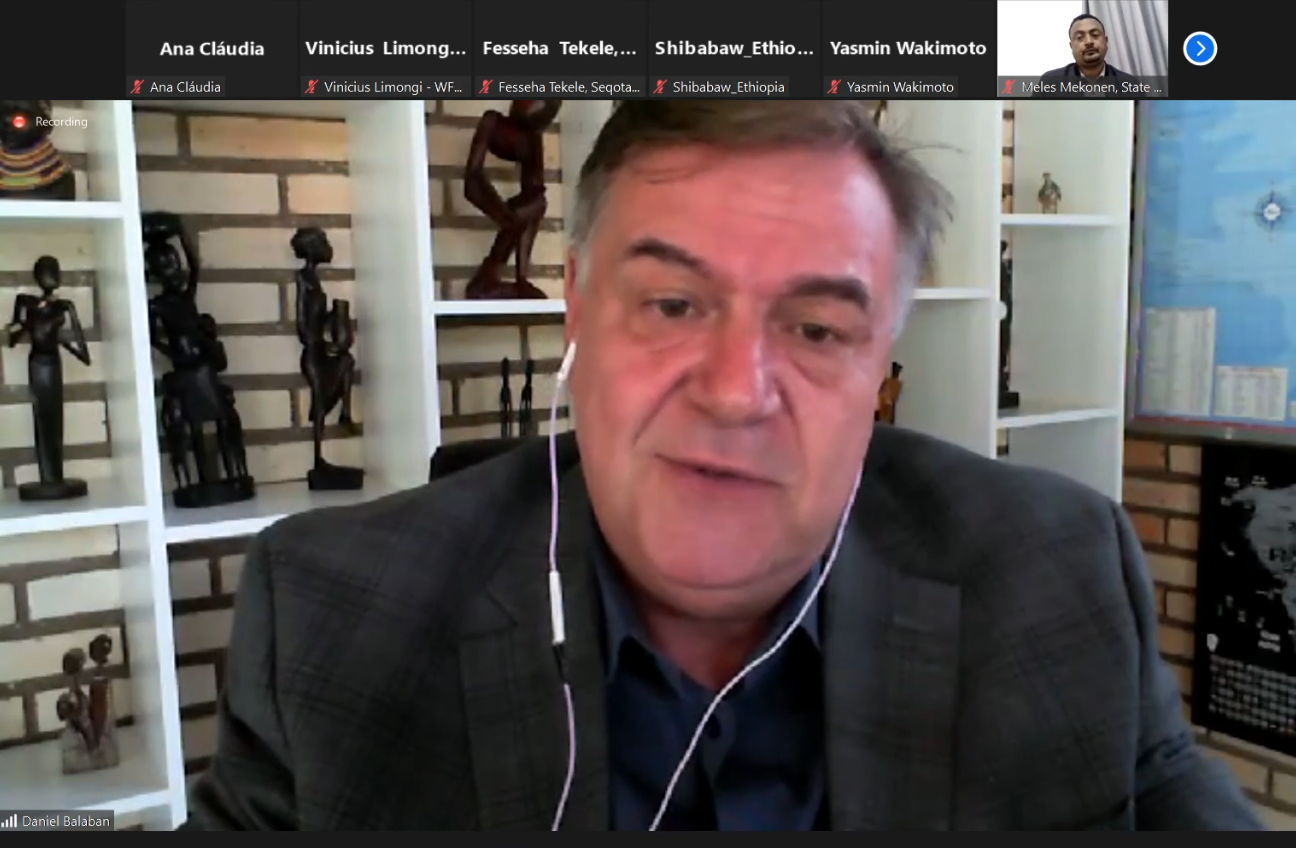
The WFP Centre of Excellence against Hunger Brazil welcomed the government of Ethiopia for a second online virtual exchange session on Thursday, May 12. The objective of the session was to deepen the discussions started in the first meeting, which took place on May 4th, to share experiences, to answer questions, and prepare the teams for a face-to-face visit of the Ethiopian government to Brasilia, scheduled for June this year.
The meeting was attended by around 52 participants, including staff from the WFP country office in Ethiopia, representatives of the Ethiopian government at the national and regional levels, representatives of the Brazilian Cooperation Agency (ABC), the National Fund for Education Development (FNDE) and Save the Children partners.
The partnership aims to help Ethiopia transform its agricultural sector, mainly through nutrition-sensitive policies, by promoting the sharing of knowledge and best practices between the Brazilian and Ethiopian governments. Although Ethiopia has a diversified agroecology that allows for the production of food of different varieties, much of its population still faces food insecurity due to recurrent drought and other various reasons.
According to Plínio Pereira, interim head of Trilateral South-South Cooperation at ABC, the meeting sought to provide, in a totally remote way, an overview of the Brazilian National School Feeding Program (PNAE) and its strategies, in addition to continuing a series of in-person visits to Brazil carried out by Ethiopia since 2012.
“The school feeding agenda has always been considered a priority and fundamental to Brazil. We have seen that, in the complex scenario in which we currently live, this issue gains even greater relevance in strategic decisions in international forums as an effective tool to support countries in mitigating the impacts of the sad picture of increased poverty and hunger in the world,” said Plínio Pereira.

Shared strategies
During the event, participants from Ethiopia were able to ask questions and exchange knowledge with representatives of the Brazilian government about the material that details the experience of school feeding in Brazil, especially the videos produced with information about the PNAE. The videos that compose the virtual visit to Brazil cover topics such as the legal framework of the Programme, financing, institutional capacities, design and implementation, and family farming.
The 2013 Ethiopian Cost of Hunger Study revealed that about 28% of national child mortality is associated with malnutrition. Some of the questions raised by the Ethiopian government were related to early childhood nutrition, starvation, and how to ensure the financial sustainability of a school feeding programme.
According to Bruno Silva, International Advisor of PNAE, early childhood feeding is a priority in the Programme and is based on good practices of the Food Guide for the Brazilian Population, of the Ministry of Health, such as, for example, not offering foods with sugar or highly industrialized foods for children under the age of three. About financial sustainability, the advisor’s recommendation is to ensure laws that foresee a budget for programmes related to school feeding.
At his closing remarks, the Director of the WFP Centre of Excellence against Hunger Brazil, Daniel Balaban, highlighted the Ethiopian government’s effort to implement a nutrition-sensitive approach to agriculture. “One way to do this is to link school feeding programs to family farming. This is one of the biggest challenges of these programs worldwide, but it is also one of the most effective measures to create impact across multiple sectors,” he added.
Ethiopia’s Minister of Agriculture, Melese Mekonnen, also thanked, at the end of the meeting, the WFP team and the Brazilian government for their efforts in the partnership and for answering the Ethiopian government’s questions about school feeding. “The visit has been a great opportunity for all of us,” he concluded.
On-site visit
The objective of the on-site visit to Brasília by the Ethiopian delegation, scheduled for June, is to share the experiences of school feeding in Brazil, nutritional leadership and programming knowledge in the agricultural sector, as well as good practices of PNAE, which are relevant to support Ethiopia’s Nutrition Sensitive Agriculture (NSA) policy.
The topics covered in the exchange visits will be used as inputs and guides for Ethiopia’s Ministry of Agriculture to develop a strong institutional framework for nutrition promotion, design appropriate nutrition interventions, and increase resources to support nutrition-sensitive agriculture and school feeding initiatives.
Learn more about the “Virtual Study Visit: Brazil” and request a virtual visit here.




